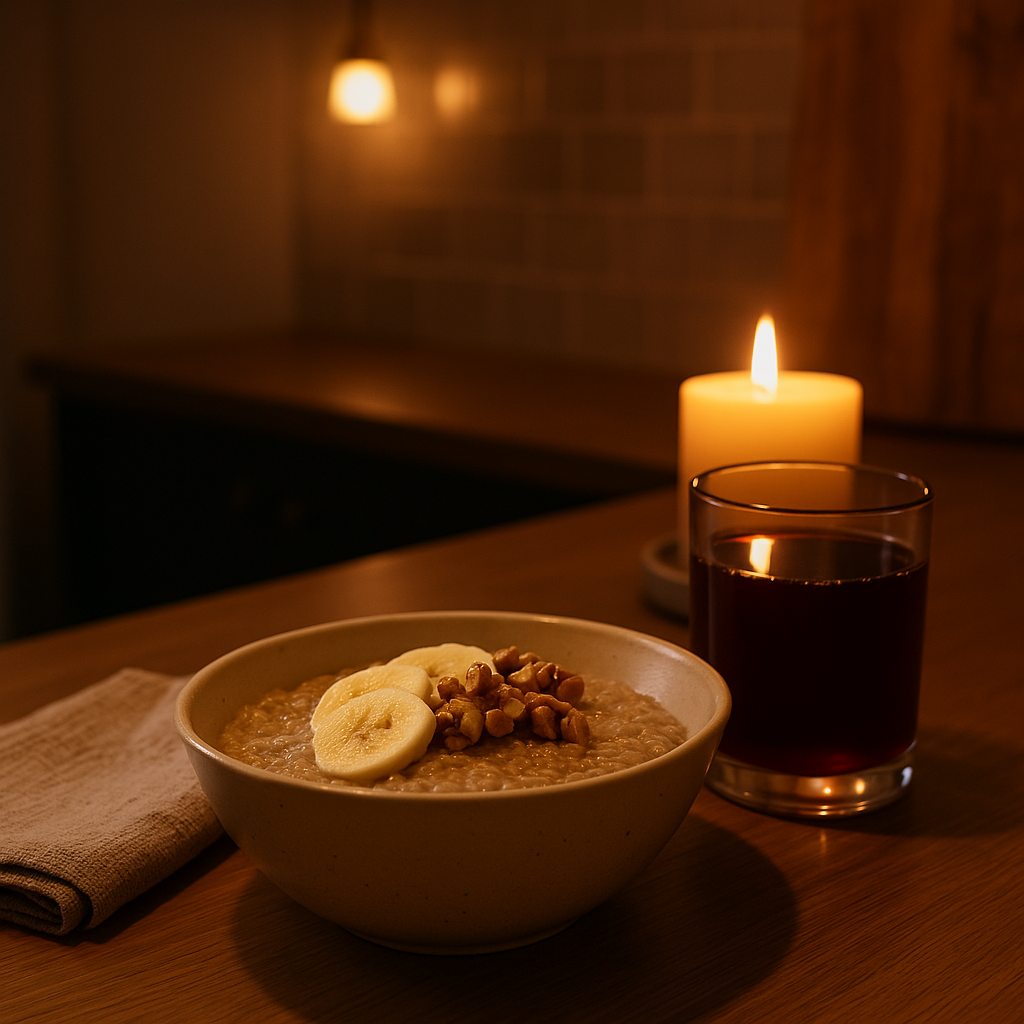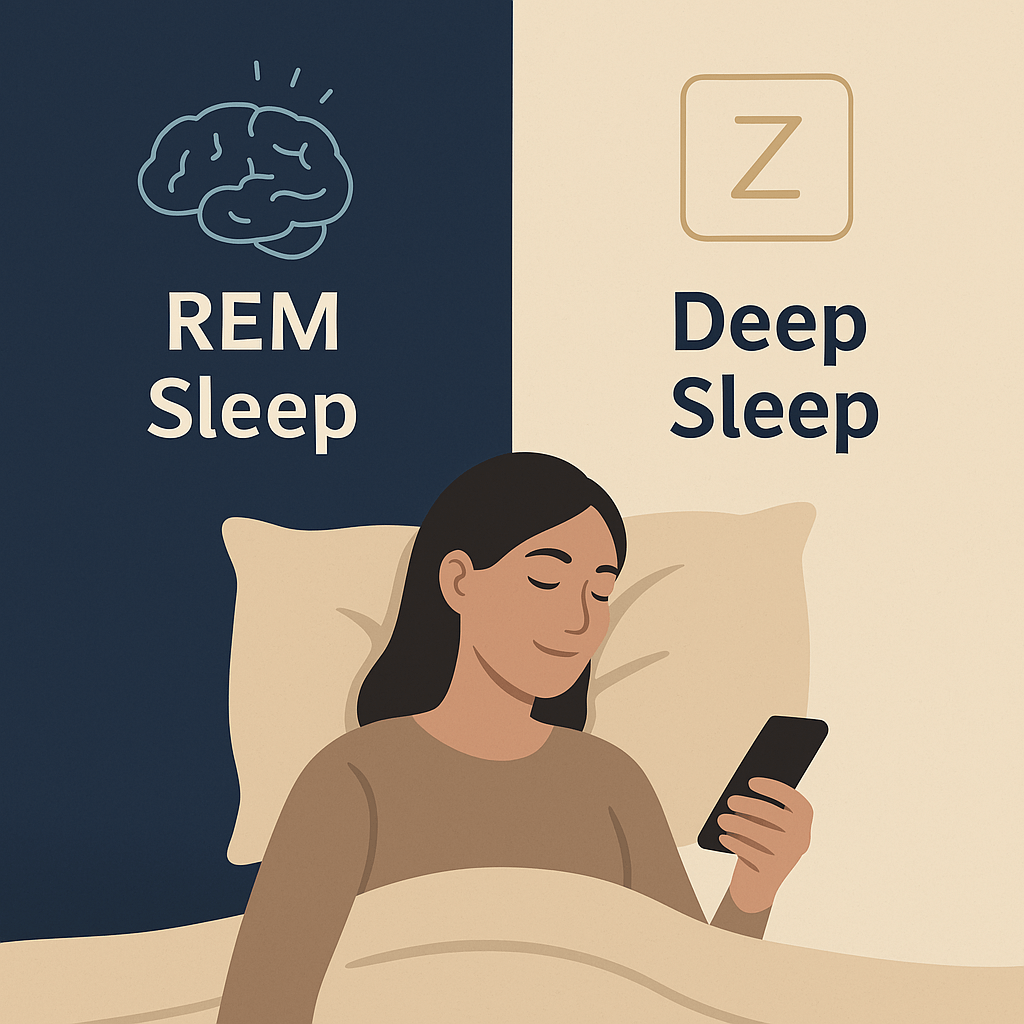When we think about what affects our sleep, we often jump straight to stress, screen time, or even how comfortable our mattress is. But one of the most overlooked contributors to poor (or great!) sleep? Your diet. What you eat — and when you eat it —plays a major role in how well you rest at night. Let’s break down the science behind how your diet impacts your sleep quality and what simple changes can lead to better Zzz’s.
🧠 The Science Behind Food and Sleep
Certain nutrients and compounds found in food directly affect your body’s sleep-wake cycle. For example:
- Tryptophan, an amino acid found in foods like turkey and oats, is used by your body to produce serotonin, which then converts into melatonin, the hormone that helps you fall asleep.
- Magnesium and B vitamins help regulate neurotransmitters and muscle relaxation, which are key for deeper sleep.
- A deficiency in these nutrients can disrupt your ability to fall and stay asleep.
In short: sleep-friendly food fuels your body to rest better.
🥑 Foods That Support Better Sleep
Some foods are natural sleep promoters. Incorporating these into your dinner or bedtime snack can help signal your body that it’s time to wind down:
- Complex Carbohydrates – Think sweet potatoes, brown rice, or oats. These carbs help tryptophan cross into the brain.
- Sleep-Promoting Proteins – Turkey, chicken, almonds, and pumpkin seeds are all great sources.
- Sleepy-time Drinks – Herbal teas like chamomile or valerian root, and even tart cherry juice (which contains natural melatonin) can ease you into slumber.
Pro tip: A small carb + protein snack an hour before bed can be a gentle nudge toward sleep mode.
🚫 Foods and Habits That Disrupt Sleep
Just as some foods help, others can hinder your ability to get restorative sleep:
- Caffeine – Found not only in coffee, but also tea, chocolate, and some medications. Its stimulating effects can linger for hours.
- Alcohol – May make you drowsy initially but disrupts your sleep cycles later in the night.
- Heavy or Spicy Foods – These can lead to indigestion or acid reflux, keeping you tossing and turning.
- Sugar & Ultra-Processed Foods – Blood sugar spikes and crashes can cause nighttime awakenings.
🕰 Timing Matters: When You Eat Is Just as Important
The timing of your meals can influence your body’s natural rhythms:
- Try to finish your last meal 2–3 hours before bed to avoid digestive disruptions.
- Avoid late-night snacking, especially if it’s sugar-laden or high in fat.
- A consistent meal schedule supports your circadian rhythm and keeps your body clock on track.
🌙 Creating a Sleep-Smart Eating Routine
Here’s a sample sleep-friendly meal plan to inspire your own:
- 🍳 Breakfast: Scrambled eggs with spinach and whole grain toast
- 🥗 Lunch: Grilled salmon, quinoa, and roasted veggies
- 🍽 Dinner: Turkey and sweet potato bowl with sautéed greens
- 🫖 Bedtime Snack: Chamomile tea and a banana with almond butter
Also, stay hydrated, but taper off in the evening to avoid middle-of-the-night bathroom trips.
💭 Final Thoughts
Your diet is more than just fuel—it’s a vital tool for shaping how well you sleep. By being mindful of what and when you eat, you can enhance your sleep quality naturally, no pills required.
At Slumberite, we believe better sleep starts with better support, from calming tools to thoughtful guides that help you unwind with intention. Because when you sleep right, you live better—and you deserve that, every night.



Leave a comment
This site is protected by hCaptcha and the hCaptcha Privacy Policy and Terms of Service apply.